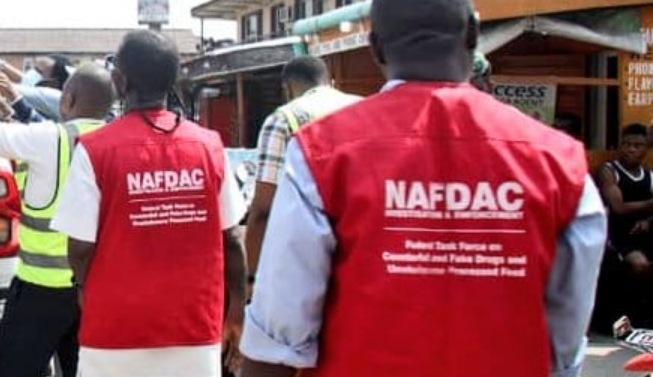The National Agency for Food and Drug Administration and Control (NAFDAC) has justified its recent crackdown on fake drugs across the country and dismissed claims that the organisation was against businesses.
NAFDAC’s recent crackdown on fake drugs saw it raiding markets and shops where these substances were discovered.
That has triggered condemnation from some persons who accuse the agency of unfairness and targeting non-drug sections of some markets. But NAFDAC’s Director General Mojisola Adeyeye has dismissed the allegations and hinged the organisation’s actions on “safeguarding” the health of the nation.
“We are not disturbing trade, we are protecting lives. We could not have done it ourselves without the NSA. It is a security risk for our country. What the BBC showed will break your heart. Young men who have been rendered useless,” Adeyeye said in a video posted on NAFDAC’s X handle following recent seizures by the agency.
“So, what NAFDAC is doing is what NAFDAC is supposed to do – safeguarding. There is no politics in what we are doing. Most of the shops are not registered by the PCN. PCN registers sites and people that are working on the sites.”
‘A Thorough operation’
The DG’s comment came during a press conference in Lagos on Saturday after the agency sealed over 11,000 shops and arrested 40 persons in its crackdown on fake and substandard drugs.
According to her, the crackdown was planned for over a year as a covert operation. The agency started the move from the Idumota Open Drug Market in Lagos, the Ariaria Drug Market in Aba, Abia State, and the Bridge Market in Onitsha, Anambra State on February 10.
NAFDAC said three markets which distribute more than 80 per cent of medications in the country, were targeted to eliminate falsified and unregistered drugs.
“We are winding down our operations in Aba because we have almost completed the evacuation. Our next phase is to inspect shops individually to identify those operating legally and those who are not registered,” the NAFDAC DG said.
“We have closed over 4,000 shops in Onitsha, 3,027 in Lagos, and another 4,000 in Aba since the commencement of these operations. In Onitsha, we have completed only 20 per cent of the work. We need to carry out a thorough operation because some traders, although genuine, are not registered under the Pharmaceutical Council of Nigeria (PCN).”






